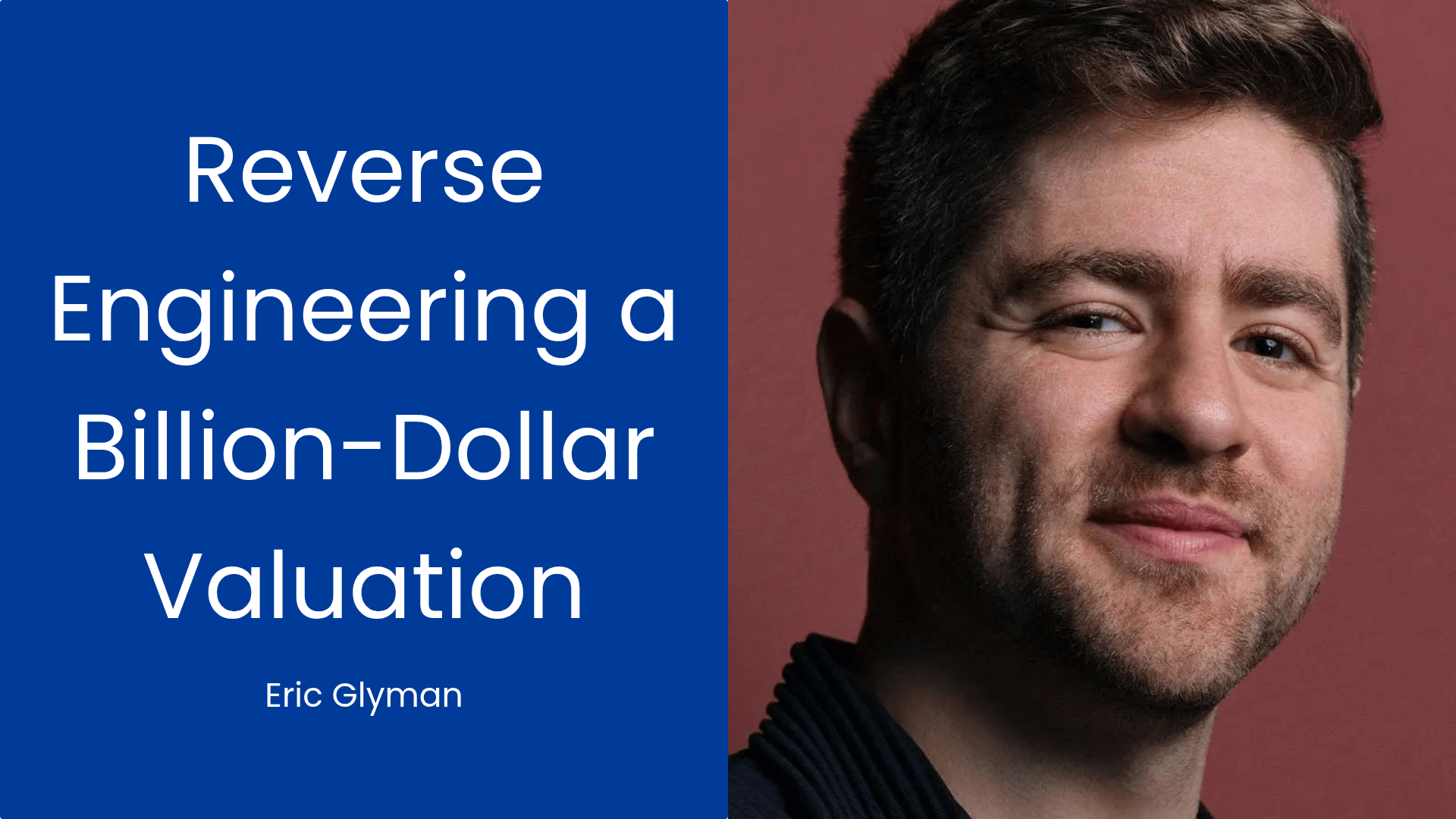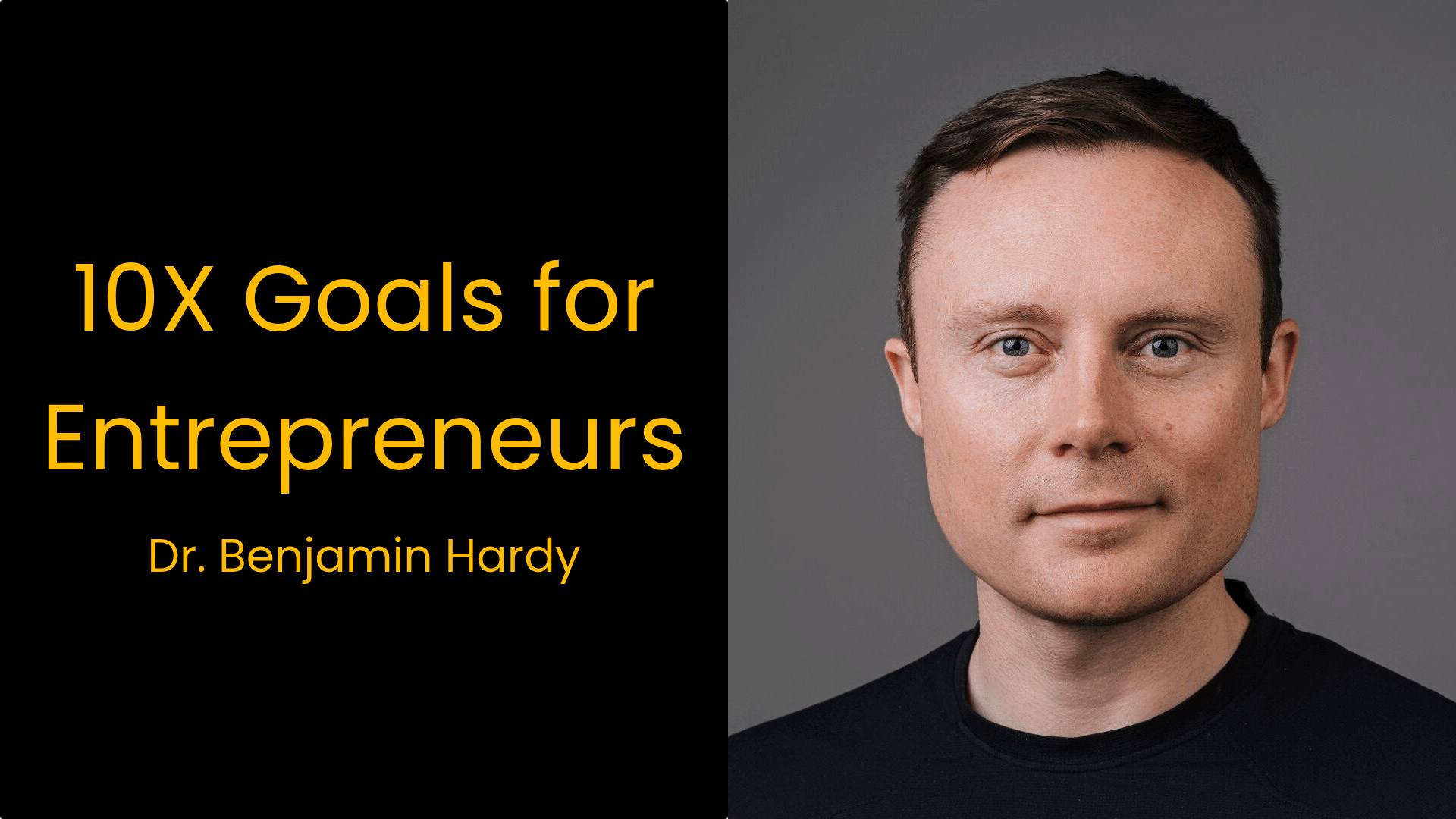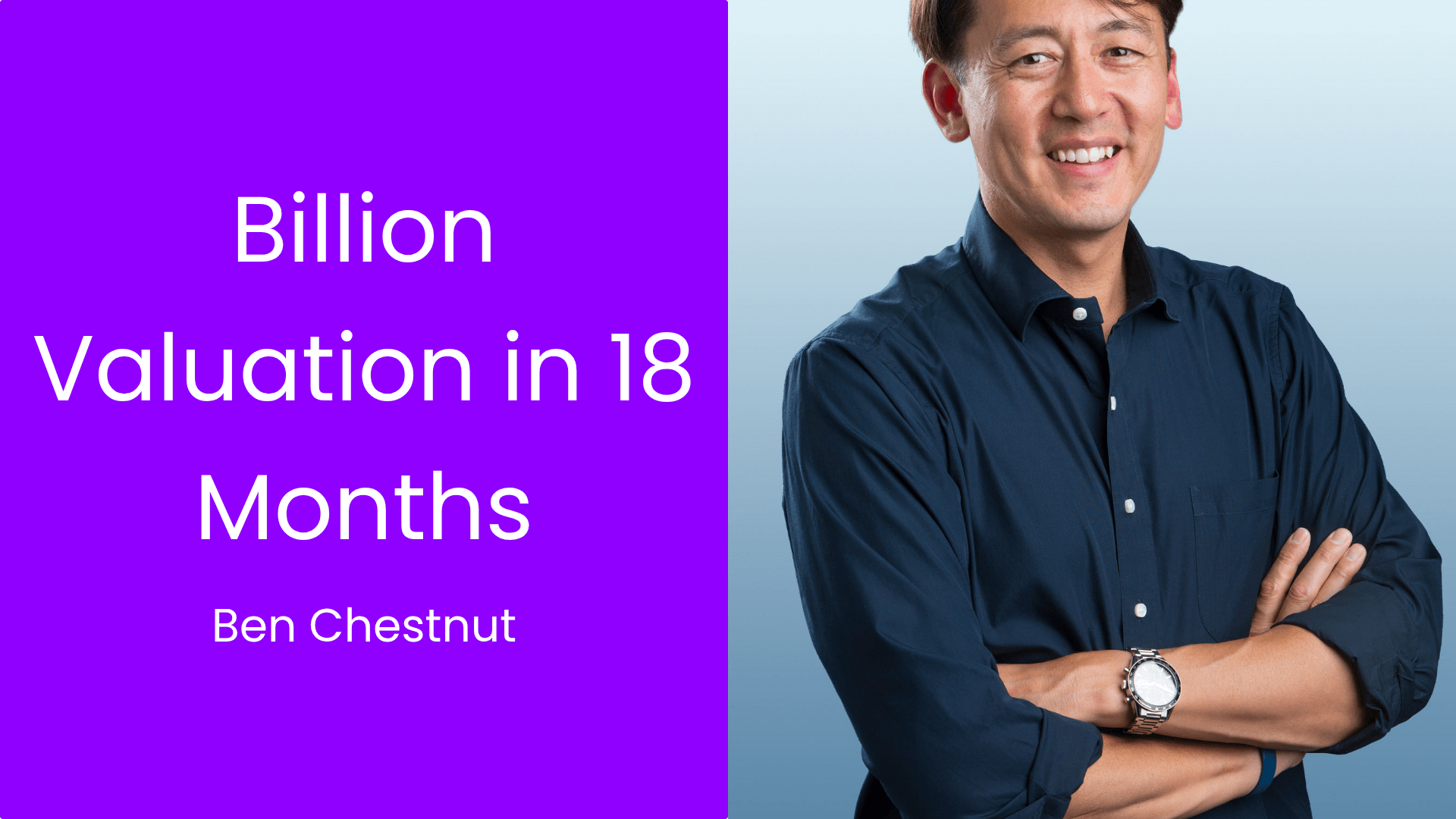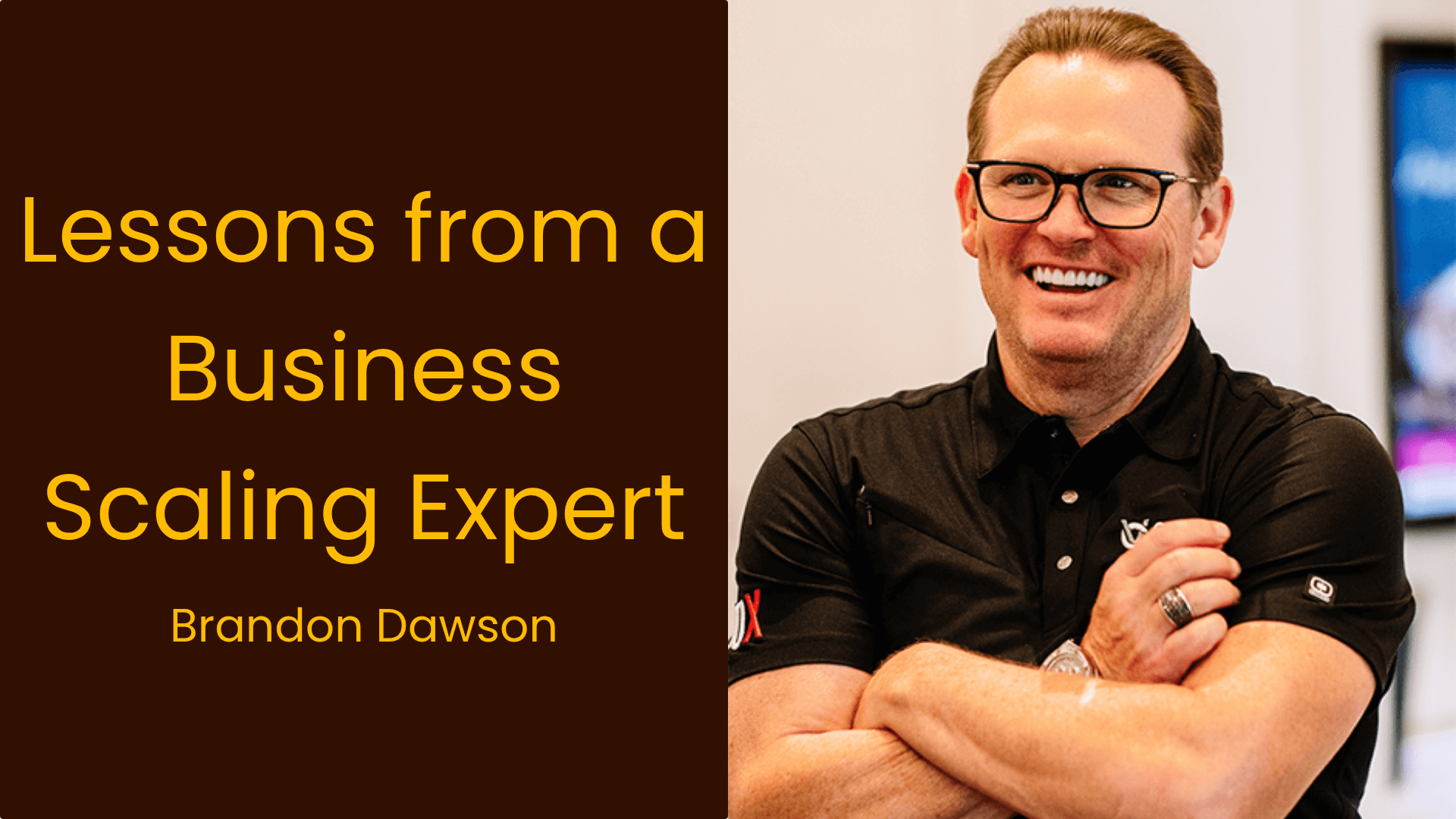Reverse Engineering a Billion-Dollar Valuation: Eric Glyman's Ramp Success Story
with Eric Glyman
Discover how Eric Glyman co-founded Ramp and scaled it to unicorn status in record time by designing for velocity, reverse-engineering growth milestones, and building a culture around joy instead of burnout.

Full Content
Lucrative: Reverse Engineering a Billion-Dollar Valuation
From the podcast:
"We wanted to go fast for sure... We wanted to go and make this company big and either make it huge quickly or fail really quickly." — Eric Glyman
Why it matters: Most founders assume billion-dollar outcomes take decades. Ramp proved otherwise. By setting an explicit goal—reaching a $1B valuation in 18 months—the team reverse-engineered growth levers instead of drifting. Their story highlights the importance of extreme clarity: bold targets force sharp decisions. Even if you don't hit a billion, designing for speed can uncover hidden efficiencies. The bigger risk is aiming small and succeeding slowly.
Action Step:
- Write down your 18-month 'impossible' outcome.
- Map backwards the milestones needed quarterly.
- Pressure-test whether each step forces bold execution.
Innovative: Designing a Company for Velocity
From the podcast:
"From early on we designed the company explicitly around velocity... Within 45 days we wanted network approval, within 60 days bank approval, within 70 days funding our first transactions." — Eric Glyman
Why it matters: Ramp didn't just want to move fast—they operationalized it. By setting time-boxed milestones, they prevented inertia and locked in urgency. In industries dominated by slow incumbents, speed itself becomes a moat. A velocity-first mindset means trading perfection for progress and measuring growth in days instead of quarters. Ramp hit $100M run rate in ~17 months, one of the fastest fintech trajectories in history.
Action Step:
- Pick one outcome (customers, revenue, or product launch).
- Set a 45–90 day milestone that feels uncomfortable but possible.
- Track weekly progress and cut anything that doesn't serve that milestone.
Fun: Culture Built on Joy, Not Burnout
From the podcast:
"I would rather find people who just find extreme joy in their craft and set them up where they can be doing just that as much as possible all the time." — Eric Glyman
Why it matters: Hypergrowth often conjures 100-hour weeks and churn-and-burn teams. Ramp's experience shows another path: design roles around intrinsic joy. When people spend most of their time in flow, velocity sustains without burnout. Scaling from 200 to 1,100 employees in a few years requires more than headcount—it demands a culture where talent stays energized. Fun isn't perks—it's alignment. For founders, joy is a retention strategy.
Action Step:
- Audit your own calendar—are you spending time on work you enjoy?
- Survey your team on energizing vs draining tasks.
- Reallocate responsibilities so each person spends ≥60% of time on energizing work.
Easy: Interchange Explained—How Cards Really Make Money
From the podcast:
"Every time a card is swiped... the merchant gets the lion's share, processors take a little, Visa or MasterCard take a little, and the issuer keeps most of the interchange." — Eric Glyman
Why it matters: Many founders use business credit cards but don't understand the mechanics. Ramp's model relies on interchange—the small slice taken from each card transaction. Even boring business models like this can underpin multi-billion-dollar companies. Simple, recurring revenue streams that look like tiny percentages often compound into massive cash flows at scale.
Action Step:
- If you're in SaaS, ask: can your product monetize via transactions, not just subscriptions?
- Map your unit economics for hidden compounding fees.
- Study adjacent industries (payments, logistics, healthcare) where "boring" fees create giants.
- Revisit whether your pricing leaves compounding revenue untapped.
- Test a usage-based or transaction-based experiment this quarter.
STAT
Ramp's revenue grew ~70x year-over-year in 2020, reaching nearly a $10 million run rate before its first full year of launch.
This kind of acceleration is almost unheard of in business, even during peak market conditions. Most startups spend years finding product-market fit, yet Ramp compounded velocity from day one by reverse-engineering milestones and committing to growth at all costs.
The takeaway for founders: explosive growth often comes less from chance and more from deliberate design. Clear targets, time-boxed milestones, and obsessive focus can compress years of scaling into months. While not every market allows 70x growth, disciplined velocity compounds everywhere.
RECS
- Scale Hack: Reverse-engineering 18-month goals — Map backwards from 'impossible' outcomes to make bold execution inevitable.
- Breathe: Stoic reset drill — A 2-minute exercise to stop, catch yourself, and reset your day.
- Deep Dive: Not Boring: Ramp's $8B trajectory — Paki McCormick's breakdown of Ramp's explosive growth playbook.
About the Guest
Eric Glyman is the co-founder of Ramp, a corporate card and financial automation platform that scaled to unicorn status in record time. Before Ramp, he co-founded Paribus, a price-tracking startup acquired by Capital One, where he later served as Senior Director. With a background in financial services and product innovation, Eric has built companies focused on velocity, operational efficiency, and customer value. Under his leadership, Ramp grew from incorporation in 2019 to an $8.1 billion valuation by 2021, with revenue scaling nearly 100x in under two years. His career reflects deep expertise in fintech, payments, and scaling high-growth startups.
Topics Covered
Get More Insights
Subscribe to "The Growth Memo" for weekly growth insights and strategies from successful entrepreneurs.
Share This Interview
Related Articles

10X Goals for Entrepreneurs
with Guest
Discover insights from Guest on entrepreneurship, goal setting, scaling and learn actionable strategies for building successful businesses.

Billion Valuation in 18 Months
with Ben Chestnut
Discover insights from Ben Chestnut on Entrepreneurship, Startup Stories, Business Strategy and learn actionable strategies for building successful businesses.

Lessons from a Business Scaling Expert
with Brandon Dawson
Discover insights from Brandon Dawson on scaling, mindset, entrepreneurship, business failure and learn actionable strategies for building successful businesses.
Showing 3 most relevant articles based on shared topics